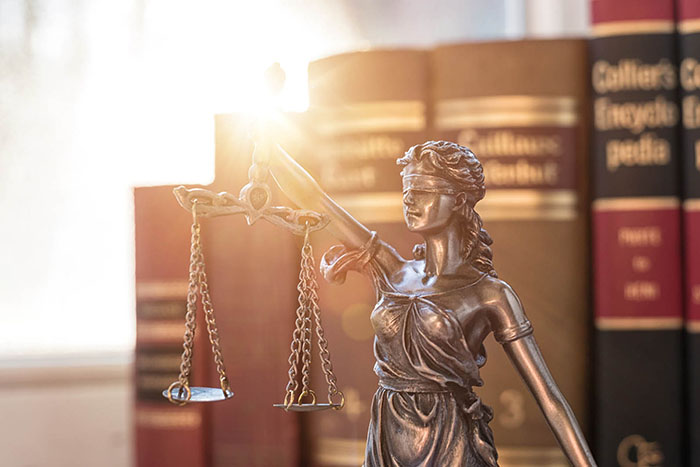In the recent case of Rogerson (t/a Cottesmore Hotel, Golf and Country Club) v Eco Top Heat & Power Ltd, the High Court considered whether or not the defendant’s decision to change experts was “expert shopping” and whether to impose a condition requiring the defendant to disclose documents relating to the instruction of the original expert.
Expert shopping: a quick recap
Expert witnesses owe independent duties to the court and should not be partisan to the party instructing them. If a party seeks to change expert witness without an objectively good reason, there is often an inference that it is doing so because the expert’s opinion does not support the client’s view. This so-called practice of “expert shopping” is generally discouraged by the court as it may suggest a party is looking for an expert to produce an opinion to support its case, rather than engaging an expert to provide an independent opinion to assist it on how to approach litigation. Whilst expert shopping is not banned, as part of its powers under the Civil Procedure Rules (CPR), the court can impose conditions on a party looking to swap experts if it considers expert shopping is happening.
Background
The claimant was the owner of a hotel which had suffered a fire and the defendant was a firm of building contractors. The claimant alleged that the fire had been caused by a cigarette discarded by an employee of the defendant while working on the premises. Shortly after the fire, each party instructed a forensic fire expert who attended the site. The parties later exchanged pre-action correspondence, in which the defendant did not refer to an expert.
In August 2020, the claimant commenced a claim. In the run up to the first case management conference, the defendant indicated an intention to rely on the evidence of a different expert (Expert B) to that who had initially attended the site (Expert A). Expert A had never produced a written report.
The claimant did not oppose the change, but applied to make a condition of the change that the defendant disclose certain documents, including a privileged file note of a pre-action meeting between Expert A and the defendant's solicitor, in which Expert A had addressed the matter of causation (the “File Note”). The claimant argued that the attempt to use a different expert was a case of preferring the view of one expert to another, which amounted to expert shopping.
The defendant challenged the claimant’s application, arguing Expert B was more qualified to deal with the issues at hand and had initially been instructed by a third party UK Power Networks, rather than by the defendant or their insurers. As a result, they should not be held to the choice of an expert made before litigation was in prospect and the potential issues were known.
Decision
The court granted the defendant’s application to rely on a different expert, on the condition that it disclose the File Note.
The court found that, when exercising its powers under CPR rule 35.4, it could impose conditions to a party changing expert even where this meant disclosing privileged documents. This was not to be exercised as a direct order overriding legal privilege. Instead, the defendant was to be given the option of changing expert for the price of disclosing the File Note. The absence of a written report from Expert A did not prevent the disclosure of Expert A’s views, as there may have been an attempt to ensure any views were expressed in a privileged conversation only. As such, any documents where an expert had expressed their opinion, including notes and provisional reports, could be relevant.
The court was critical of the defendant for a lack of transparency when providing its reasons for wanting to change experts and it had not disclosed the terms on which Expert A had been instructed. As the defendant had submitted that Expert A had only been instructed for an initial report, in the court’s view they should have provided evidence to support this. Their failure to do so meant the court approached this argument with scepticism.
The court then considered whether Expert A could be considered an expert instructed under CPR 35 at all. To determine this, the present case was compared with the process followed in personal injury cases, which requires the parties to co-operate in the selection of experts. In its judgment, there had been a process of co-operation and engagement by the parties in the claim, and Expert A had likely been instructed with a view to (if not in fact) appointing him as the CPR 35 expert. The court could assume this as litigation had been in prospect at the time, the letter of instruction had not been disclosed, and it made sense (when the likely issues were known) for a party to rely on the expert who had inspected the site at an early stage.
Accordingly, the court could draw an inference of clear expert shopping. On the sliding scale identified by the court, the present case sat closer to obvious expert shopping. The defendant was allowed to change experts, but the price for this was disclosure of the File Note.
Comment
It is clear that the court regards expert shopping as undesirable, and parties to litigation should seek to avoid it. Parties that are looking to change experts following an early instruction should proceed with caution or risk creating the appearance, and thus paying the price, of expert shopping. The following points in particular should be noted:
- The importance of candour, and clearly identifying the terms of the original expert’s instruction
- That the expert has not provided a written report will not prevent the disclosure of any privileged advice given
- The court’s jurisdiction to impose conditions on changing experts extends to pre-action instructions
- The clearer the case of expert shopping, the greater the price of changing expert

 Robert Scudamore
Robert Scudamore